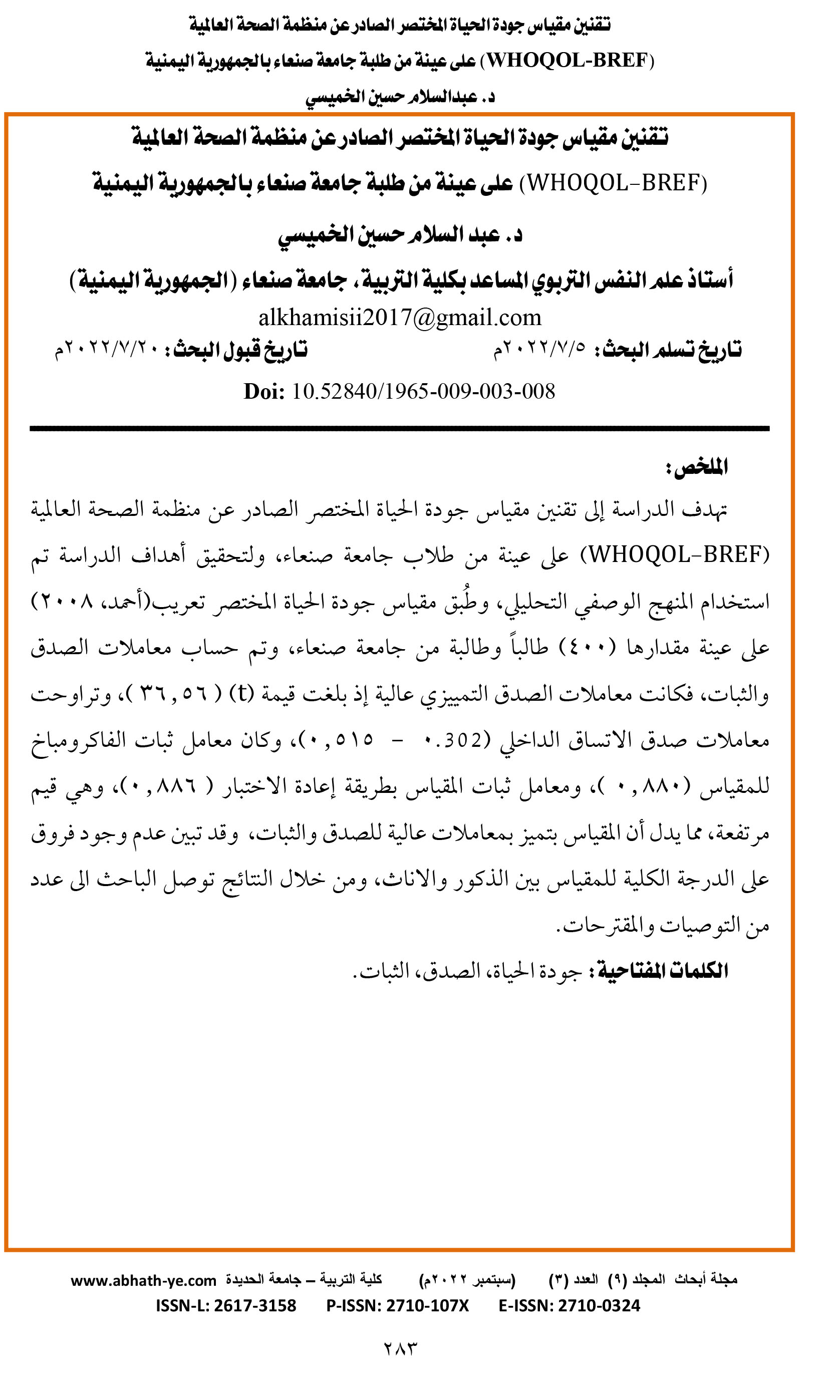Rationing World Health Organization's Brief Quality of Life Scale (WHOQOL-BREF) on a Sample of Students from Sana'a University, Republic of Yemen
Keywords:
quality of life, validity, consistencyAbstract
The study aimed at rationing the World Health Organization's Brief 'Quality of Life' Scale on a sample of students from Sana'a University. To achieve the objectives of the study, the descriptive analytical approach was used. In addition, the Short Quality of Life Scale (Arabized by Ahmed, 2008) was applied on a sample of (400) students from Sana'a University. Henceforth, the parameters of integrity and stability were extracted: the parameters of discriminating validity were high as the (t) value was (36.56), the parameters of internal consistency ranged between (0.302 – 0.515), Alpha-Cronbach coefficient of the scale was (0.880), and consistency parameter of the scale via retesting method was (0.886). These were high values, indicating that the scale has high validity and consistency parameters. Moreover, it was concluded that there was no differences in the total score between males and females. Through the results, the researcher reached a number of recommendations and suggestions.

Downloads
Published
How to Cite
Issue
Section
License
Copyright (c) 2022 ِabhath Journal for the Humanities

This work is licensed under a Creative Commons Attribution 4.0 International License.
- البحوث المنشورة في المجلة مرخصة بموجب ترخيص (CC BY 4.0) Creative Commons Attribution 4.0 الدولي.
- تسمح المجلة بإعادة نسخ وتوزيع ونقل العمل لأي وسط أو شكل لأي غرض.
- تسمح بالتعديل والتحويل، والإضافة على العمل مع نسبة ذلك إلى المؤلف.
- حقوق النشر يحتفظ بها الباحثون.




